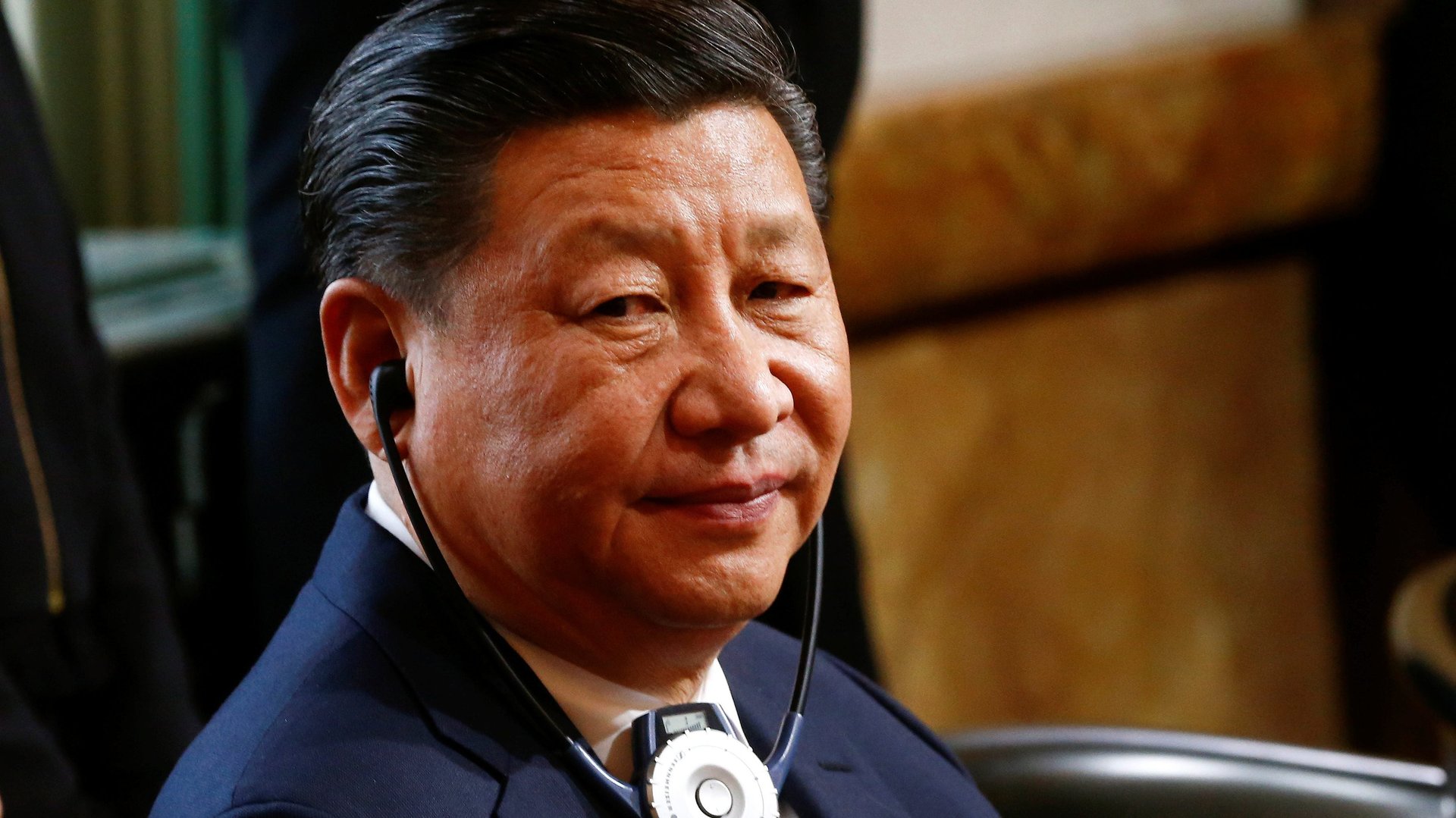At Davos, expect Chinese president Xi Jinping to get philosophical
China’s Xi Jinping has too many titles on his business card. President, general secretary of the Communist Party, head of the Central Leading Group for Comprehensively Deepening Reforms, and the mysterious-sounding party “core” that he was officially endorsed as last October, to name just a few.


China’s Xi Jinping has too many titles on his business card. President, general secretary of the Communist Party, head of the Central Leading Group for Comprehensively Deepening Reforms, and the mysterious-sounding party “core” that he was officially endorsed as last October, to name just a few.
But at the World Economic Forum that begins Jan. 17 in Davos, expect him to take on the role of a philosopher.
During his first visit to the conference, Xi will explain in a speech “where humans came from, where they are now, and where they are going,” wrote the top state newspaper People’s Daily in an editorial published on its Jan. 15 front page (link in Chinese).
The philosophical questions are embodied in Xi’s vision to build the globe into a “common community of human destiny.” That’s a buzzphrase he’s used often since taking office in 2012. The idea is deeply rooted in thousands of years of Chinese culture and is aligned with China’s foreign policy, according to the editorial. It is also “a kind of philosophy,” an unidentified “international voice” is quoted as saying.
In another editorial about Xi’s Davos trip (the first by a Chinese president), state news agency Xinhua explained the phrase (link in Chinese) as “a new concept of win-win, multi-win, and all-win” and the establishment of partnerships in which countries “treat each other as equals, and engage in mutual consultation and show mutual understanding.” Other state media appear similarly committed (link in Chinese) to touting the phrase, with some describing it as China’s solution to global governance.
Chinese officials said earlier that Xi would put forward Beijing’s opinions on how to steer the global economy ”toward greater inclusiveness” at this year’s forum.
While the phrase “common community of human destiny” might sound like gibberish to many, it does contrast nicely for Xi against the “America first” rhetoric of incoming US president Donald Trump.
Xi’s presence at Davos comes amid rising US-China tensions. Beijing faces potential threats from the still-forming Trump administration on trade, Taiwan, and the South China Sea.
Since Trump’s election victory, Beijing has been quick to embrace a more assertive global role on issues including climate change and global trade. Of course, China’s plan to lead the global economy might be foiled by its enormous debt burden, reliance on trade surpluses, and weak household consumption.
It’s doubtful Xi will put a philosophical spin on those issues, too.